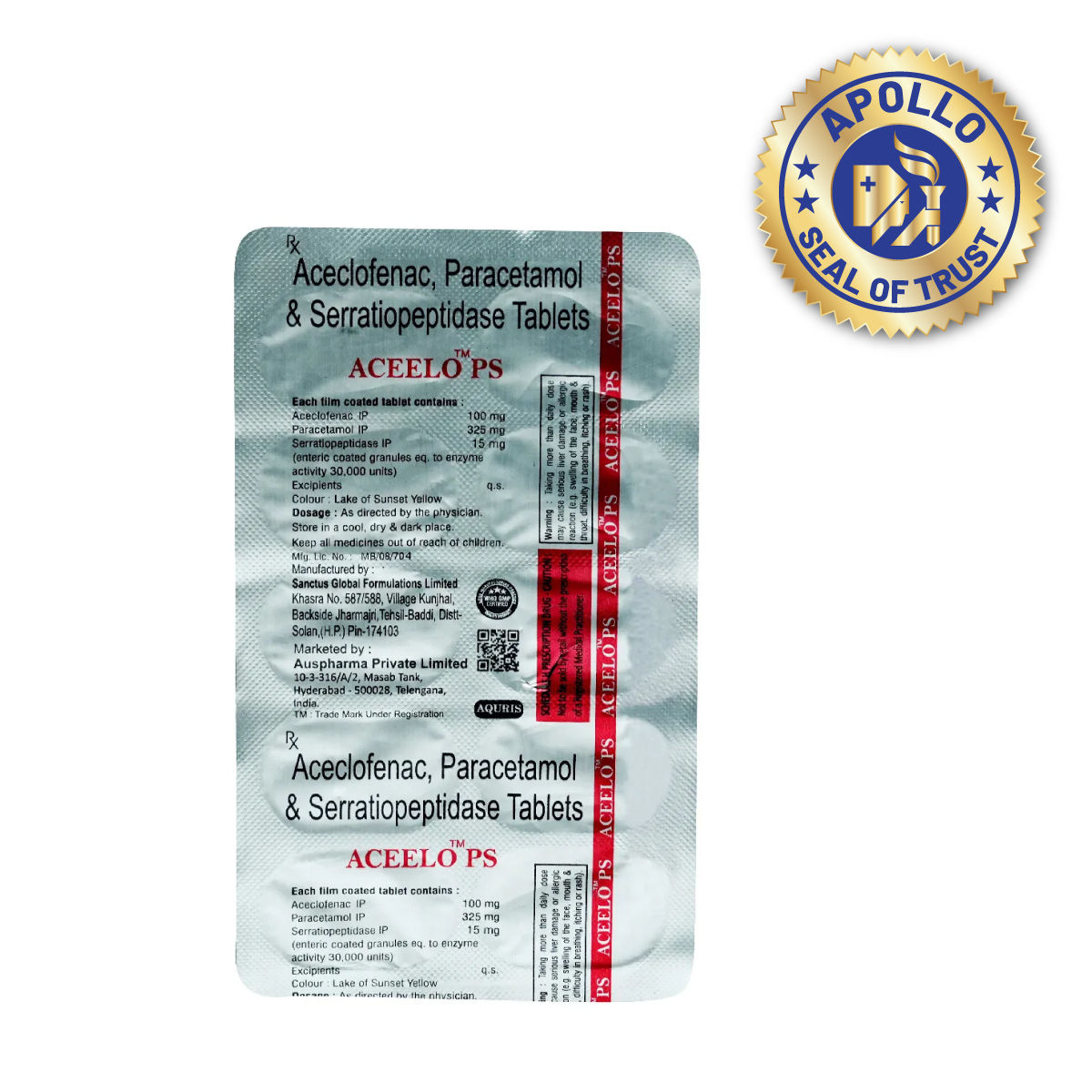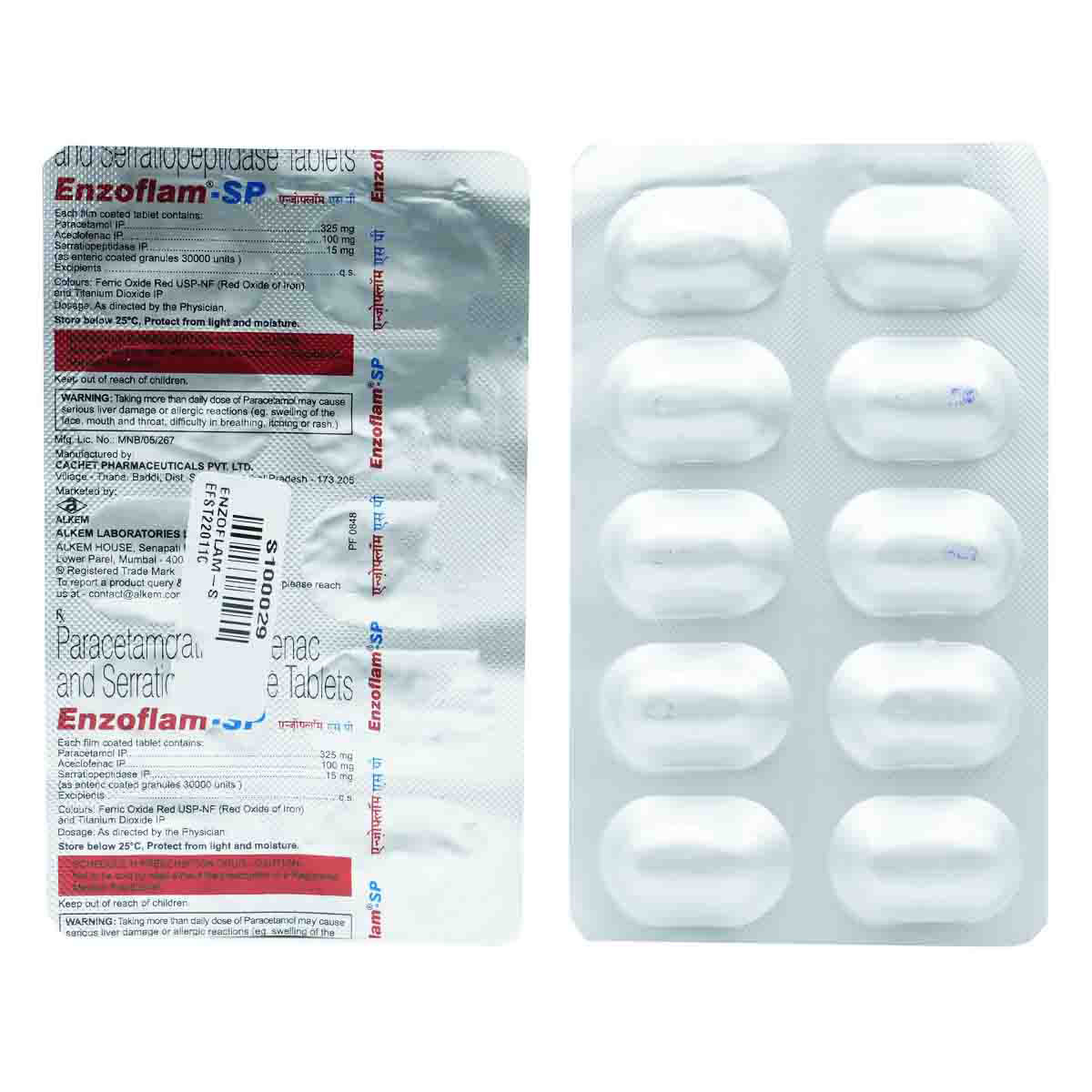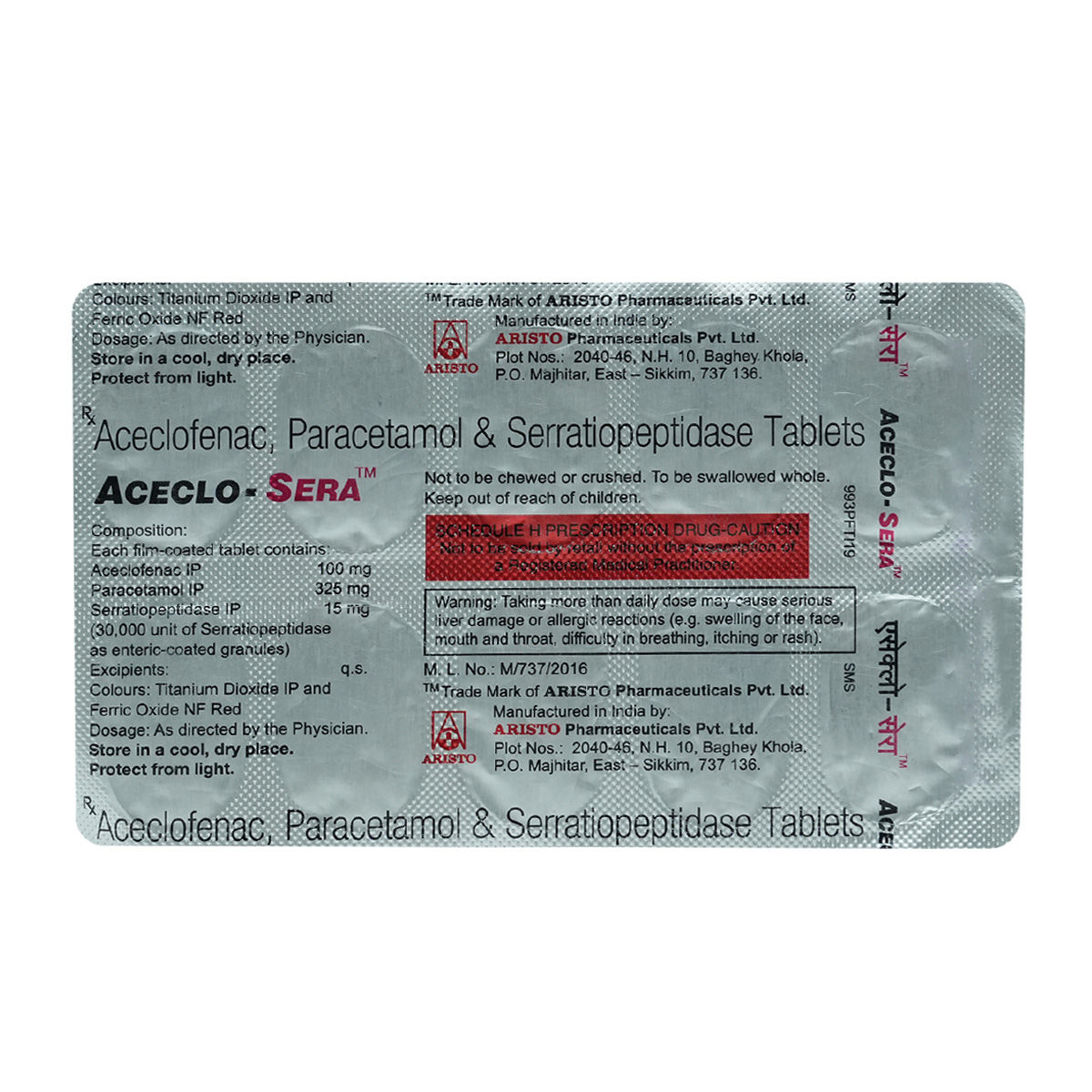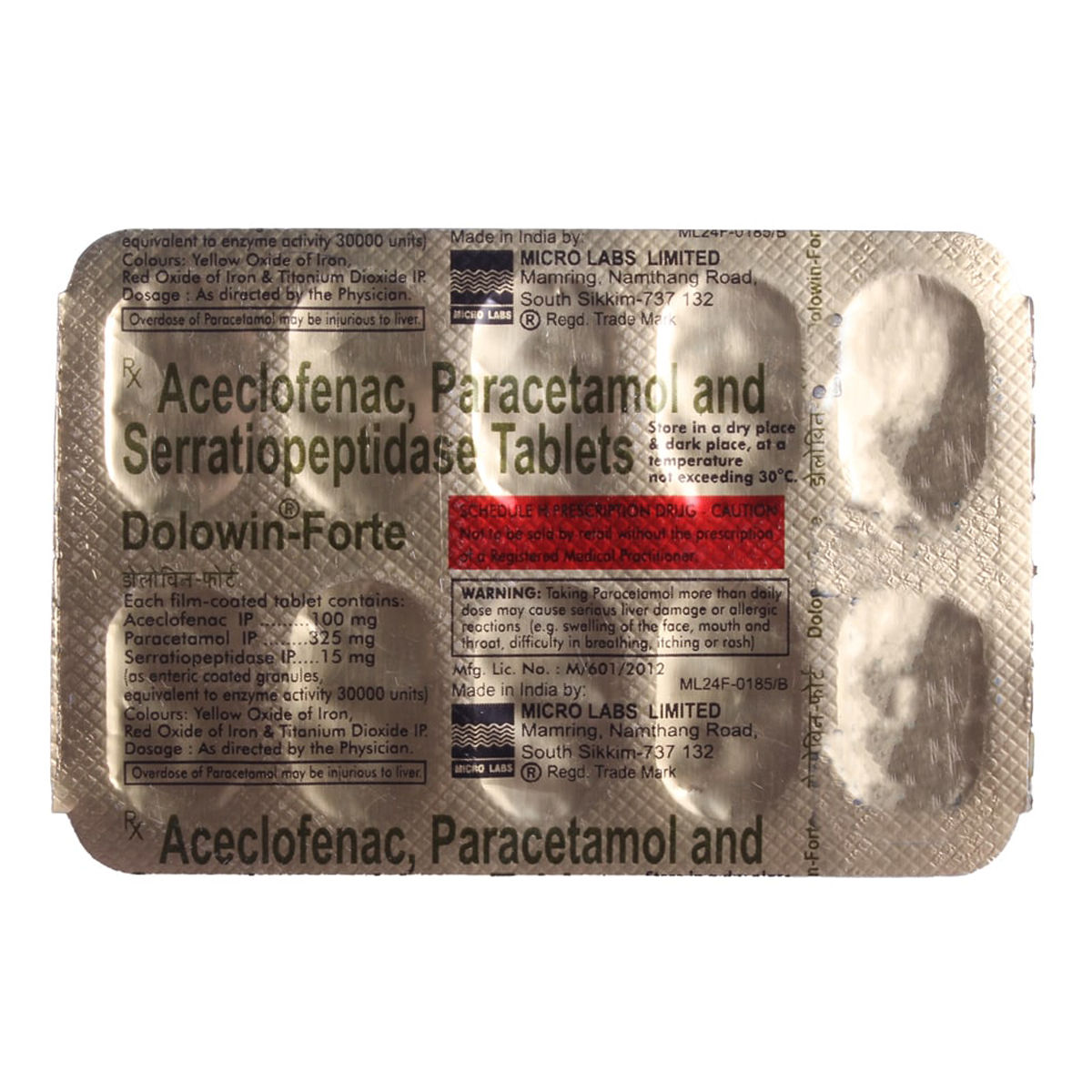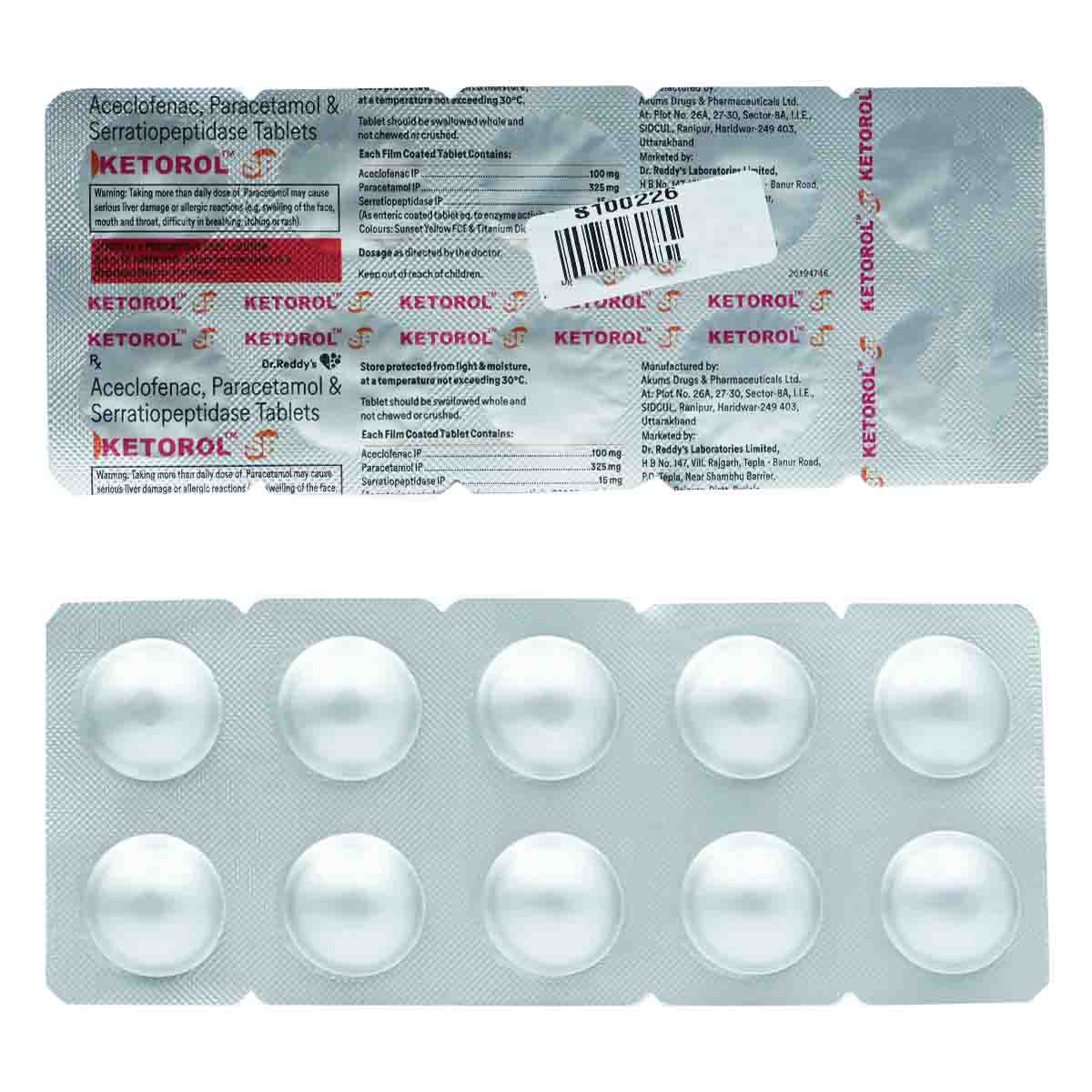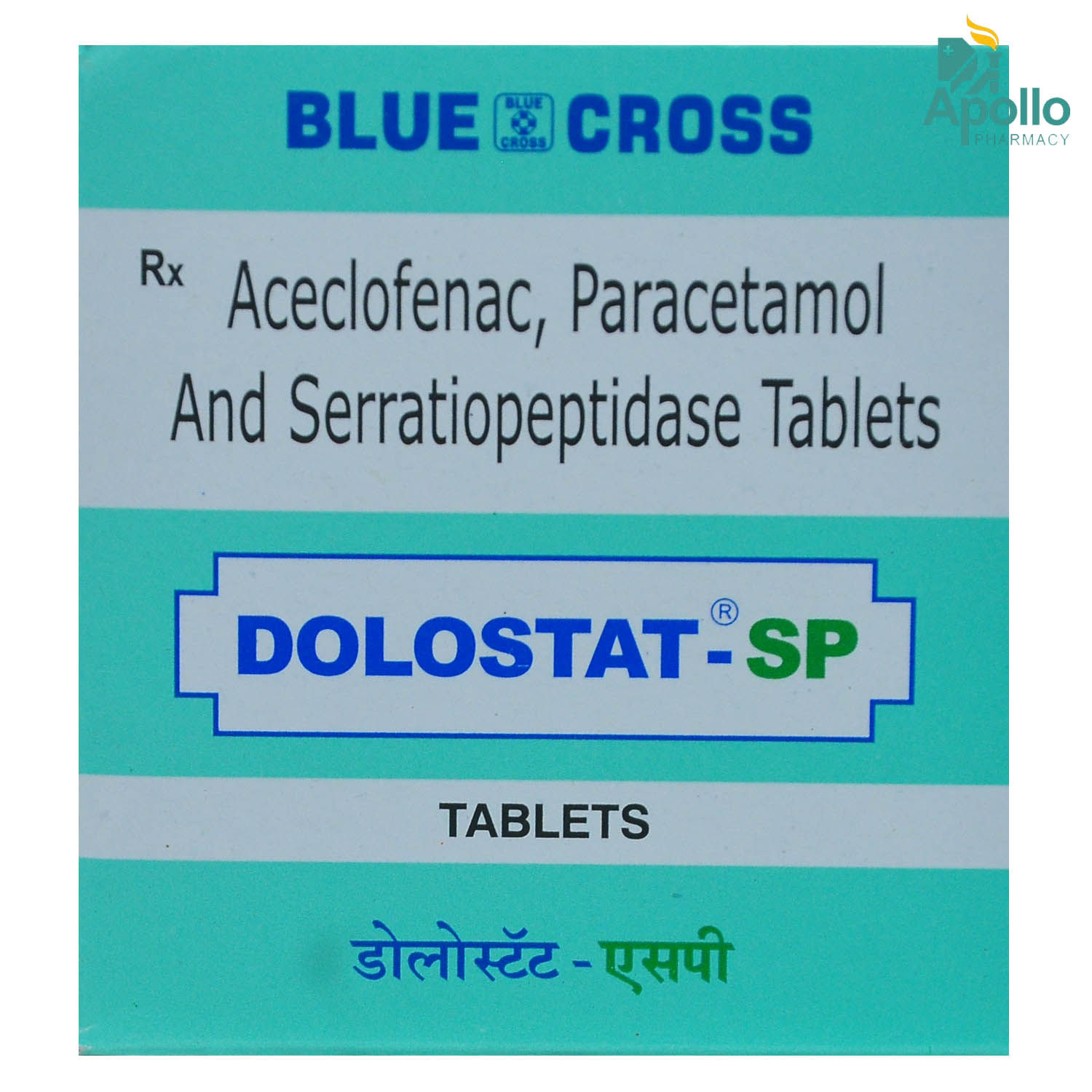Nhance-AP Tablet 10's
Nhance-AP Tablet is used to reduce pain and inflammation due to bone or soft tissue injury, resolution of postoperative inflammation, oedema (swollen tissue with fluid) and pain. It works by blocking the action of an enzyme known as cyclo-oxygenase (COX), which causes pain and swelling in the injured or damaged tissue. Also, it helps in the breakdown of a protein (fibrin) which is formed as a by-product of the blood clot at the site of injury. Thus, it causes thinning of the fluids around the injury site, thereby making fluid drainage smoother in the swollen tissue. It may cause common side effects such as nausea, vomiting, indigestion, stomach pain, etc. Before taking this medicine, you should tell your doctor if you are allergic to any of its components or if you are pregnant/breastfeeding, and about all the medications you are taking and pre-existing medical conditions.
₹98.6*
MRP ₹109.5
10% off
₹93.07*
MRP ₹109.5
15% CB
₹16.43 cashback(15%)
Free Delivery
With Circle membership
(Inclusive of all Taxes)
This offer price is valid on orders above ₹800. Apply coupon PHARMA10/PHARMA18 (excluding restricted items)
Know Your Delivery Time
Provide Delivery Location

Available Offers
 Prescription drug
Prescription drugWhats That

Secure Payment

India's Most Trusted Pharmacy

Genuine Products
Manufacturer/Marketer :
Consume Type :
Return Policy :
Expires on or after :
About Nhance-AP Tablet
Nhance-AP Tablet belongs to the class of drugs known as 'non-steroidal anti-inflammatory drugs' (NSAID). It is a fixed-dose combination composed of aceclofenac, paracetamol and serratiopeptidase. Nhance-AP Tablet is used in the reduction of pain and inflammation due to bone or soft tissue injury, resolution of postoperative inflammation, oedema (swollen tissue with fluid) and pain. Aceclofenac works by blocking the action of an enzyme known as cyclo-oxygenase (COX), which causes pain and swelling in the injured or damaged tissue. Paracetamol acts as a mild analgesic (pain reducer) and antipyretic (fever reducer), which enhances the pain relief action of aceclofenac. Serratiopeptidase is an enzyme which helps in the breakdown of a protein (fibrin) which is formed as a by-product of the clotted blood at the site of injury. It thus causes thinning of the fluids around the site of injury thereby making fluid drainage smoother in the swollen tissue.
Pain can be temporary (acute) or lifelong (chronic) in nature. Acute pain is, for a short time, caused by damage to the tissues of the muscle, bone or organs. Chronic pain lasts for life and is caused by nerve damage, osteoarthritis and dental pain due to damage to the tooth nerve, infection, decay, extraction or injury. There are different types of musculoskeletal pain caused due to soft tissue (muscle, tendon and ligaments) injury. Extreme tissue pain and inflammation caused due to sprains, strains or trauma or post-surgery may require a prolonged amount of time to heal.
You can take Nhance-AP Tablet with food or without food. It should be swallowed whole with a glass of water. Do not chew, bite or break it. Your doctor will advise you on how often you take your tablets based on your medical condition. Most of the side effects of Nhance-AP Tablet do not require medical attention and gradually resolve over time. Common side effects include nausea, vomiting, indigestion, stomach pain, etc. However, if the side effects are persistent, reach out to your doctor.
Try not to stop taking this medicine of your own. Do not take Nhance-AP Tablet if you are allergic to painkillers like aspirin, ibuprofen, naproxen, or diclofenac. It is not recommended for use in children. It is advisable not to exceed the recommended dose or duration of treatment.
Uses of Nhance-AP Tablet
Directions for Use
Medicinal Benefits
Nhance-AP Tablet consists of aceclofenac, paracetamol and serratiopeptidase. Aceclofenac works by blocking the action of an enzyme known as cyclo-oxygenase (COX), which causes pain and swelling in the injured or damaged tissue. Paracetamol acts as a mild analgesic (pain reducer) and antipyretic (fever reducer), which enhances the pain relief action of aceclofenac. Serratiopeptidase causes thinning of the fluids around the site of injury, thereby making fluid drainage smoother in the swollen tissue. Together, these not only reduce pain and inflammation but also help with faster healing.
How Nhance-AP Tablet Works
Storage
Side Effects of Nhance-AP Tablet
- Nausea
- Stomach Pain
- Loss of appetite
- Diarrhoea
- Stomach upset
- Indigestion
What if I have taken an overdose of Nhance-AP Tablet
Drug Warnings
Consumption of alcohol should be avoided during the treatment with Nhance-AP Tablet as it may lead to an increase in the risk of liver damage. Patients with stomach ulcers, gastric bleeding, severe heart failure and liver or kidney disease should not take Nhance-AP Tablet on their own. Besides this, it should be avoided during the last trimester of pregnancy, unless there are compelling reasons for doing so. If you have a severe allergy to painkillers like asthma, rhinitis, angioedema (swelling under the skin) or skin rashes, immediately stop taking Nhance-AP Tablet . Use with caution in pregnancy and breastfeeding. Do not self-administer Nhance-AP Tablet if you are pregnant or are nursing.
Drug-Drug Interactions
Drug-Drug Interactions
Login/Sign Up
Co-administration of Atenolol with Nhance-AP Tablet 10's could increase the risk of low blood pressure.
How to manage the interaction:
Although there is a possible interaction between Atenolol and Nhance-AP Tablet 10's, you can take these medicines together if prescribed by a doctor. Consult a doctor if you experience excessive sweating, shortness of breath, palpitations, or chest discomfort. Do not discontinue any medications without consulting a doctor.
Co-administration of Lomitapide and Nhance-AP Tablet 10's may increase the risk of severity of liver injury.
How to manage the interaction:
Although there is a possible interaction between Nhance-AP Tablet 10's and Lomitapide, you can take these medicines together if prescribed by a doctor. Do not stop using any medications without a doctor's advice.
Co-administration of Nhance-AP Tablet 10's and Ketoconazole may increase the risk of liver injury.
How to manage the interaction:
Although there is a possible interaction between Nhance-AP Tablet 10's and Ketoconazole, you can take these medicines together if prescribed by a doctor. However, if you have joint pain or swelling, fever, chills, unusual bleeding or bruising, skin rash, itching, over-tiredness, nausea, vomiting, loss of appetite, stomach pain, dark-colored urine, light-colored stools, and/or yellowing of the skin or eyes, contact a doctor immediately as these may be signs and symptoms of liver damage. Do not discontinue the medication without consulting a doctor.
Co-administration of Nhance-AP Tablet 10's may decrease the excretion rate of Oxazepam which could result in a higher serum level.
How to manage the interaction:
Although there is a possible interaction between Oxazepam and Nhance-AP Tablet 10's, you can take these medicines together if prescribed by a doctor. Do not stop using any medications without a doctor's advice.
Co-administration of Nhance-AP Tablet 10's and Leflunomide may increase the risk of liver problems.
How to manage the interaction:
Although there is a possible interaction between Nhance-AP Tablet 10's and Leflunomide, they can be taken together if prescribed by a doctor. However, if you experience fever, chills, joint pain or swelling, unusual bleeding or bruising, skin rash, itching, less desire to eat, fatigue, nausea, vomiting, abdominal pain, or yellowing of the skin or eyes, contact a doctor immediately. Do not discontinue any medications without consulting a doctor.
Co-administration of ketamine and Nhance-AP Tablet 10's may decrease the effectiveness of Ketamine which could result in a higher blood level.
How to manage the interaction:
Although taking Ketamine and Nhance-AP Tablet 10's together can evidently cause an interaction, it can be taken if a doctor has suggested it. If you're feeling very sleepy or having trouble breathing, it's important to contact your doctor right away. Do not stop using any medications without a doctor's advice.
Co-administration of Teriflunomide with Nhance-AP Tablet 10's may increase the risk or severity of Liver problems.
How to manage the interaction:
Taking Nhance-AP Tablet 10's with Teriflunomide together can possibly result in an interaction, but it can be taken if a doctor has advised it. Do not discontinue any medications without consulting a doctor.
Co-administration of Mipomersen with Nhance-AP Tablet 10's may increase the risk or severity of liver injury.
How to manage the interaction:
There may be a possibility of interaction between Nhance-AP Tablet 10's and Mipomersen, but it can be taken if prescribed by a doctor. Do not stop using any medications without talking to a doctor.
Co-administration of Nhance-AP Tablet 10's and Valdecoxib may increase the risk or severity of adverse effects.
How to manage the interaction:
Although there is a possible interaction between Nhance-AP Tablet 10's and Valdecoxib, you can take these medicines together if prescribed by a doctor. However, if the side effects worsen, please consult a doctor.
Drug-Food Interactions
Drug-Food Interactions
Login/Sign Up
Diet & Lifestyle Advise
- Include more glucosamine, chondroitin sulphate, Vitamin D, calcium-enriched supplements. Besides this, turmeric and fish oils can help in reducing inflammation in the tissue.
- Do not go for heavy exercise as it may increase your joint pain in arthritis. Instead, you can do stretching, low impact aerobic exercises like walking on a treadmill, bike riding and swimming. You can also strengthen your muscle strength by lifting light weights.
- In the chronic conditions of arthritis or joint pain try to include fish like salmon, trout, tuna and sardines. These fishes are enriched with omega-3 fatty acids that minimum level of chemical called cytokines, which ramp up inflammation.
- Your sitting posture is important especially when have pain and inflammation conditions. Try to sit as little as possible, and only for short time (10-15 min). Use back support like rolled-up towel at the back of your curve to minimize pain. Keep your knees and hips at a right angle. Besides this, you can use a footrest if required.
Habit Forming
Therapeutic Class
Nhance-AP Tablet Substitute

Aceelo PS Tablet 10's
₹7.04per tabletZerodol-SP Tablet 10's
₹12.51per tabletSignoflam Tablet 10's
₹14.22per tabletHifenac-SP Tablet 10's
₹12.02per tabletHifenac-D Tablet 10's
₹12.02per tablet
Product Substitutes
Alcohol
Unsafe
You are recommended not to consume alcohol along with Nhance-AP Tablet to avoid unpleasant side-effects.
Pregnancy
Caution
Nhance-AP Tablet to be taken with caution, specially if you are pregnant. Your doctor may adjust your dose depending upon your conditions, if he/she feels the benefits over weigh the risks.
Breast Feeding
Caution
Only consume Nhance-AP Tablet if it has been prescribed by a doctor as the safety data in nursing mothers is lacking. Inform your doctor if you are breastfeeding.
Driving
Caution
Nhance-AP Tablet may affect driving as it causes dizziness.
Liver
Caution
Nhance-AP Tablet to be taken with caution, especially if you have a history of liver diseases/conditions. Dose may have to be adjusted by your doctor.
Kidney
Caution
Nhance-AP Tablet to be taken with caution, especially if you have a history of Kidney diseases/conditions. Dose may have to be adjusted by your doctor.
Children
Caution
Nhance-AP Tablet should not be given to children without prescription of a child specialist. Your doctor will determine the dose of the medicine depending on your child's weight and severity of condition.
FAQs
Country of origin
Manufacturer/Marketer address
Disclaimer
Author Details
We provide you with authentic, trustworthy and relevant information






